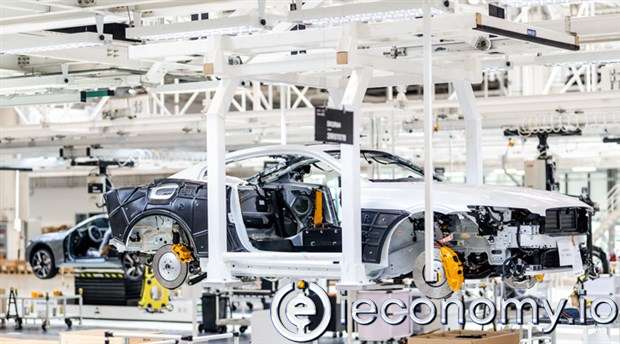Metal Concerns Dominate Electric Vehicle Manufacturers in China
There are problems with the supply of critical metal materials such as lithium and nickel that electric vehicle manufacturers need...

Yayınlanma: 22 Mart 2022 02:39
Güncellenme: 2 Mart 2026 15:42
Metal Concerns Dominate Electric Vehicle Manufacturers in China
There are problems with the supply of critical metal materials such as lithium and nickel that electric vehicle manufacturers need. While the increases in battery costs hurt, the Chinese giants turned their attention to America.
Iron ore futures started the week with a decline as the coronavirus measures took effect in Tangshan, which is known as the center point for Chinese steelmakers. Contracts traded in Singapore changed hands at around $150, down 2-3 percent in the morning. Futures rose as much as 10 percent last week on expectations of economic stimulus from China.
Tens of millions of tons of steel are produced in and around Tangshan, which is heavily industrialized and located in the northeast of China's Hebei province. This city is also considered the center of the spot goods trade.
On the other hand, another city where intense measures were applied due to the increase in the coronavirus epidemic was recorded as Changchun. The Volkswagen factory in the city remained closed today. The factory, along with Toyota's factory, suspended production on March 17.
iPhone manufacturer Foxconn, which had to suspend production last week in Shenzhen, stated that it has returned to normal as of today. It was noted that the Taiwan-based company has huge facilities in the cities of Shenzhen, Chengdu, and Zhenzhou. The Zhengzhou base, where hundreds of thousands of workers work, is the main outlet for Apple products.
On the other hand, in Guangdong province, where Shenzhen is affiliated, the measures continue, although they are eased. The state's annual export amount is close to a trillion dollars. Meanwhile, in a country that produces a total GDP of $18 trillion, the share of the states that are classified as medium and high risk has exceeded 70 percent.
The CEO of Li Auto, which produces electric cars, stated that they have come to the point of rebellion due to the difficulties caused by rising battery prices. On his Twitter account, Li Xiang described the scale of the cost increases as ridiculous. The rise in the prices of nickel, cobalt, aluminum, and copper, especially lithium, has been the biggest problem for automotive giants. Due to commodity inflation, which is directly reflected in battery costs, companies such as Tesla and Xpeng decided to increase their vehicle sales prices.
Meanwhile, Chinese authorities met with battery supply chain representatives. Lithium prices dominated the meeting. The prices of lithium carbonate and lithium hydroxide, which have an indispensable place among battery inputs, have increased at least five times in the last year.




